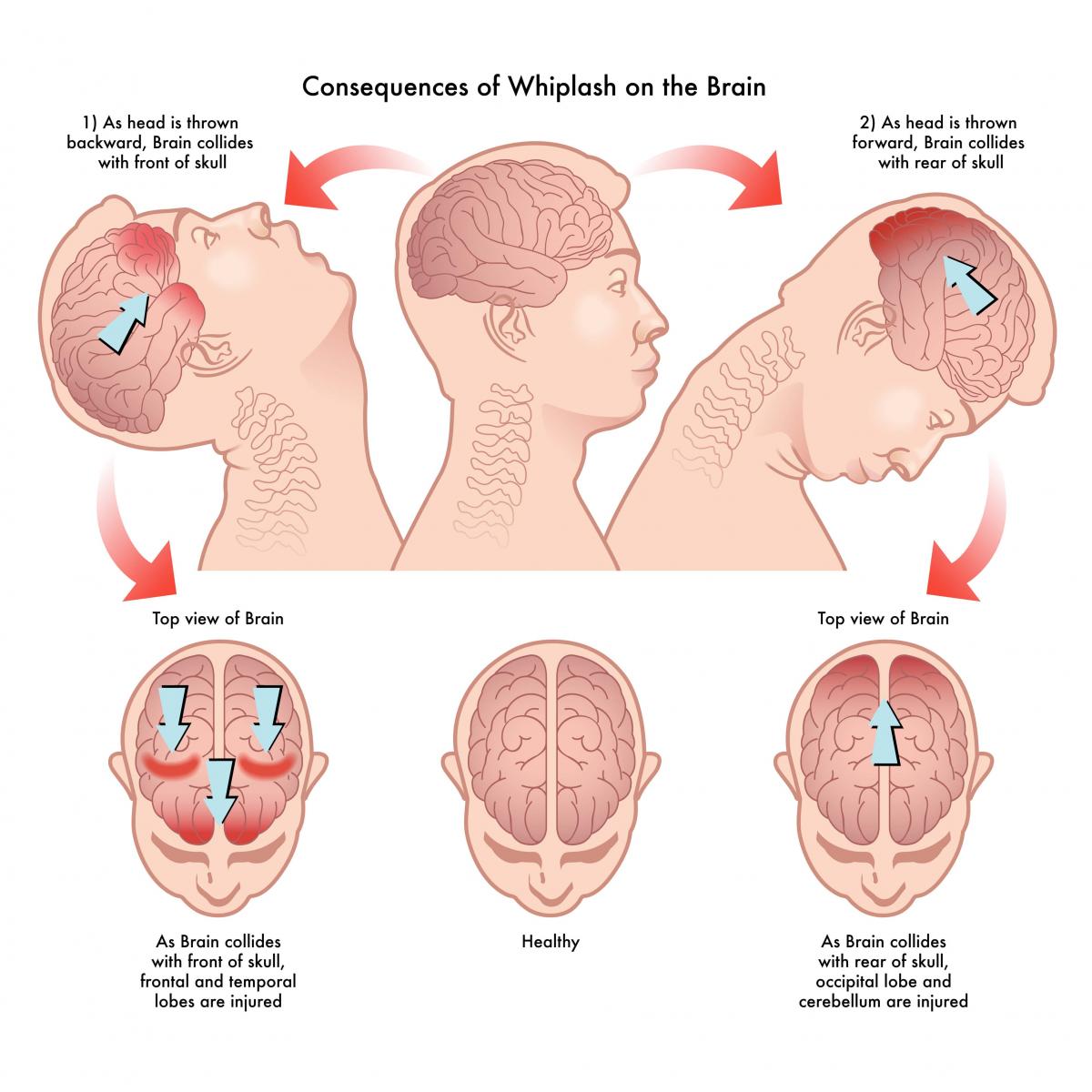What Is Whiplash and What Are the Symptoms of Severe Whiplash?

April 2022
If you’ve even been injured in a car crash, chances are good you suffered from whiplash. Whiplash is an injury of the soft tissue of the neck. It results from a forceful and rapid back and forth movement of the head and neck resembling the cracking of a whip.
Many people assume whiplash is always a result of high-speed car accidents, but this couldn’t be further from the truth. If you were rear-ended by a vehicle going as slow as five to 10 miles per hour, you could suffer a whiplash injury. It’s not uncommon for people to suffer whiplash even if there was no damage to their car. Whiplash isn’t strictly a consequence of auto collisions. Sports accidents, falls and physical abuse can also result in whiplash.
While most cases of whiplash aren’t severe, particularly serious cases of whiplash can lead to chronic pain and disability.
What Are the Common Symptoms of Whiplash?
You may not experience the full onset of whiplash symptoms immediately after the accident. Symptoms can slowly surface hours of even days after the trauma and include:
- Pain in the neck and shoulders
- Stiffness of the neck
- Muscle spasms
- Headache
- Low back pain
If you suffer these symptoms after an accident, you should seek medical attention. Even the mildest injury, if left untreated, can lead to more serious health problems and chronic pain.
What Are the Signs of Severe Whiplash Injuries?
A whiplash injury may begin with mild symptoms and respond well to simple treatments, like getting plenty of rest and using over-the-counter pain medication. However, if you’re experiencing one or more of the following symptoms, you should seek medical attention right away:
- Inability to hold up your head
- Worsening of pain
- Unexplained behavioral changes, like depression, irritability or insomnia
- Numbness in the arms
- Problems with balance
- Blurred vision
How Is Whiplash Diagnosed?
Your doctor will ask you to describe the event and your symptoms, along with their frequency and severity.
Your doctor will also gauge the severity of your condition by performing a physical examination. They will evaluate your range of motion by asking you to move your neck and shoulders. They’ll also put pressure on the neck to look for tightness and tenderness.
Since whiplash is a soft tissue injury, it cannot be detected on X-rays and other diagnostic tests specifically designed to detect hard-tissue trauma. However, your doctor may still order imaging tests to rule out other conditions, like fractures or damage to the spinal cord, especially if your neck pain is severe.
How Is Whiplash Treated?
Treatment for whiplash can vary depending on the severity of your symptoms. If your whiplash is mild, your doctor will likely recommend a couple days of bed rest and over-the-counter pain medication, like Tylenol or ibuprofen. You may also find pain relief from heat or cold therapy. Alternating heat and ice can alleviate pain and accelerate the healing of your injury.
If the pain and symptoms are more severe and persist for several months, your doctor may recommend a more aggressive treatment, such as:
- Prescription pain medications, such as muscle relaxants or opioids
- Physical therapy, including gentle stretching and exercise under the supervision of a licensed physical therapist
- Injections targeting the injured area, including steroid injections, PRP injections or amniotic stem cell therapy
- Neck massages can reduce pain by soothing tension and increasing blood flow
- Chiropractic care, specifically joint and spinal manipulation, may promote healing for some patients
Helping You Recover From Your Whiplash Injury in Marietta and Carrollton
At Non-Surgical Orthopaedics, we offer non-invasive treatments for orthopaedic injuries, including whiplash. Our dedicated physicians strive to discover the cause of your pain before developing a comprehensive treatment plan to manage your pain and improve your range of motion.
If you’re an employer with an injured employee, our physicians offer help within the first 24 hours of injury. We have experience working with employers and case managers to ensure injuries are accurately diagnosed and workers can get back on the job fast.
To make an appointment, call our Marietta and Carrollton offices at (770) 421-1420 or send a message.






